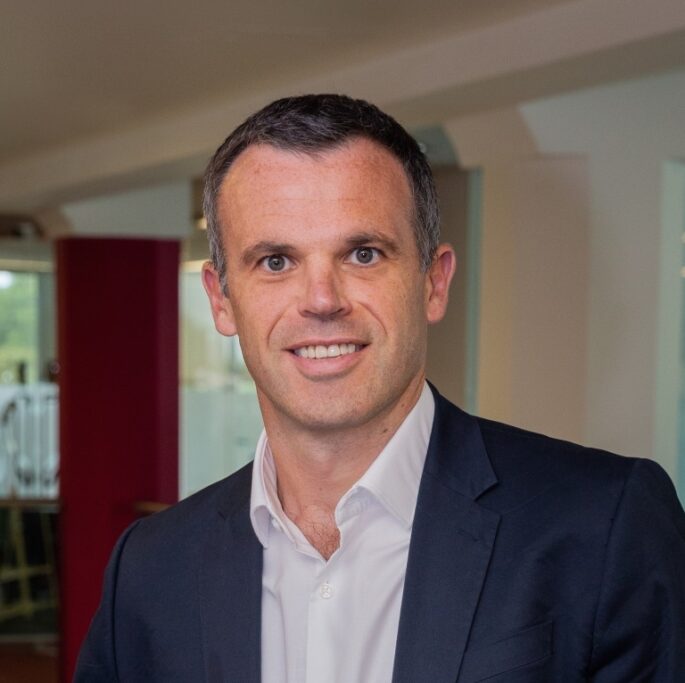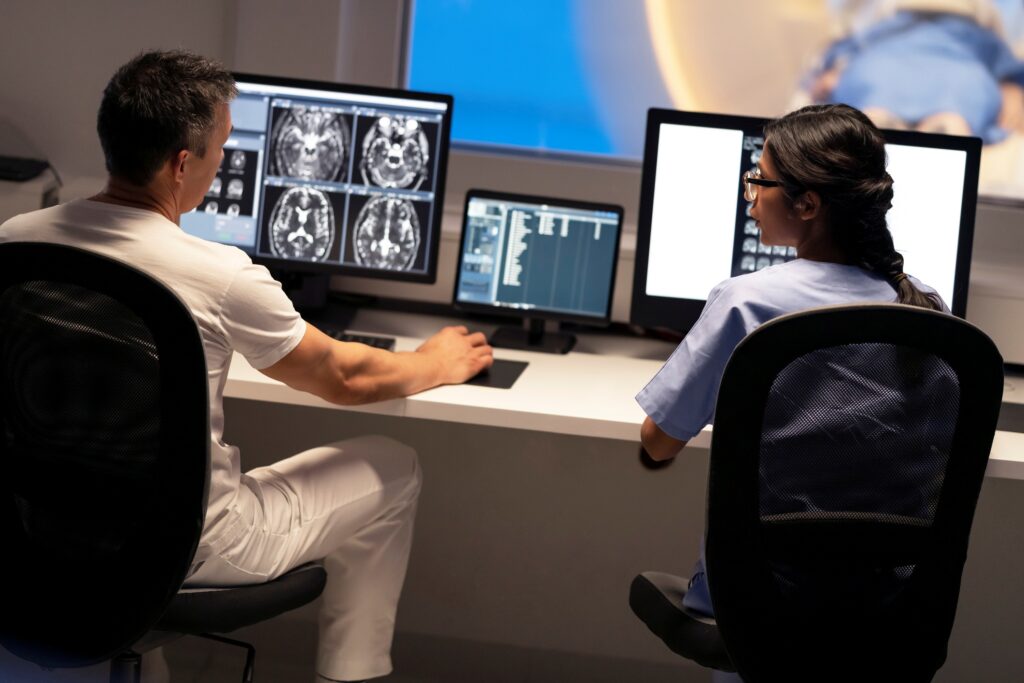As the NHS releases the latest results from its Microsoft 365 Copilot trial, Jacob West, Microsoft UK’s Managing Director of Healthcare and Life Sciences and a former NHS and Cabinet Office adviser, reflects on AI’s potential to deliver the biggest digital transformation in healthcare yet.

A ground-breaking pilot of Microsoft 365 Copilot across 90 NHS organisations has found that AI-powered administrative support could save NHS staff on average 43 minutes per staff member per day or more – that’s five weeks of time per person annually.
This could save millions of hours every year if scaled across the entire NHS – according to the Department for Health and Social Care’s latest trial results.
This is amazingly good news.
We know that the National Health Service faces historic financial, operational and political pressures, but there was some more good news when, in June 2025, the Chancellor of the Exchequer announced fresh investment into improving and expanding the NHS’s digital capabilities, promising up to £10 billion extra for technology in the period up to 2030.
Microsoft has been working with NHS Trusts to introduce Microsoft 365 Copilot, and the technology is becoming well-embedded. This AI assistant built into everyday apps like Word, Outlook, and Teams, is helping health workers write, summarise, analyse, and organise work more quickly.
The immediate focus is cutting the hours staff spend on admin – drafting notes from meetings, finding information, and updating records. Microsoft 365 Copilot is already helping to address this burden for many staff.
Safety first
There are already 70,000-plus users of Microsoft 365 Copilot in the NHS across England, Scotland and Wales, just through early trials. We hope that figure will grow significantly, as more staff start using AI to enhance their work – safely and under clear NHS governance.
 Less time spent on admin could mean more quality time spent with patients
Less time spent on admin could mean more quality time spent with patients
The NHS is introducing AI assistance carefully, on a tightly regulated basis. Each AI tool needs to earn its place by proving its safety first. But at the 100-plus organisations currently trialling Microsoft 365 Copilot, people are continually suggesting new ways to use it and these ideas are being collated in a living repository, with hundreds of use cases across knowledge-worker tasks, from handling Freedom of Information responses to documenting critical‑incidents, through to automating HR requests.
Adoption is being driven from the wards and offices up, not from the Board down.
Listening AI
A further step in easing the documentation burden is ambient voice technology, which can automatically record, analyse and report on doctor-patient consultations.
In September, we launched Dragon Copilot, Microsoft’s new clinical AI assistant, in the UK. It records the consultation in real-time and turns it into structured notes. We’re very excited about its potential to give clinicians more time to care.
Early evidence suggest the technology returns more than five minutes per consultation, while improving documentation quality and enhancing patient experience, as clinicians can focus on the person rather than the screen.
Agentic healthcare
On the near horizon are products that use multi-agent AI – several specialised assistants that collaborate under clear rules. One agent can pull data from clinical systems, for example, another can interpret unstructured notes, a third can plan next steps, and an orchestrator can keep them aligned with governance and audit.
Together, they can combine structured and unstructured information at scale to answer complex clinical and operational questions that a single model can’t handle alone.
 AI is helping clinicians share opinions and co-operate more easily
AI is helping clinicians share opinions and co-operate more easily
It’s a smart system that helps healthcare professionals make better decisions by bringing X-rays, lab results, voice recordings, clinical notes and other data into a single, governed view. We expect this to be valuable for multi-disciplinary team meetings – meetings between specialists to discuss the best course of action for individual patients.
For example, Microsoft has been working with Stanford Medicine on this kind of multi-agent orchestration, which could considerably compress cancer‑care timelines by replacing today’s piecemeal searches across disparate systems with one, shared AI canvas.
Beyond healthcare delivery
AI’s value in healthcare extends well beyond hospital walls. Tackling obesity, for example, depends on secure population-level analytics that can spot risk earlier and target support to the right people and places. That requires robust data platforms, clear governance, and fit-for-purpose analytical tools.
 AI is speeding up drug discovery for pharmaceutical companies and research institutions
AI is speeding up drug discovery for pharmaceutical companies and research institutions
At the other end of the spectrum, pharmacology labs are already using AI to speed up the discovery of new drugs – prioritising targets, screening compounds in parallel, and improving trial design – so that promising treatments can move faster towards the clinic.
A healthier future?
Ultimately, the case for AI in the NHS comes down to hard numbers. More than seven million people are currently waiting for treatment, and the service neither has the budget nor the workforce to meet that demand through hiring alone.
With two days a month liberated from just Microsoft 365 Copilot alone, the NHS gains time – its scarcest resource – to spend on care rather than clicks.
By automating routine tasks and delivering instant insights, AI helps healthcare systems do more with less – easing workforce shortages, reducing burnout, and improving patient flow.
Over time, multi-agent orchestration will let AI systems work together across clinical, operational and patient-facing domains – anticipating needs, co-ordinating care, and optimising resources in real time.
Transformation must be careful: one safe and governed step at a time. But from office desks to cancer care pathways, the evidence is already clear: AI can return time back to the frontline. And with 70,000-plus Copilot users and the potential to reach all 1.5 million NHS staff, the gains are already starting to add up.
Read more about the NHS Microsoft 365 Copilot trial results here
